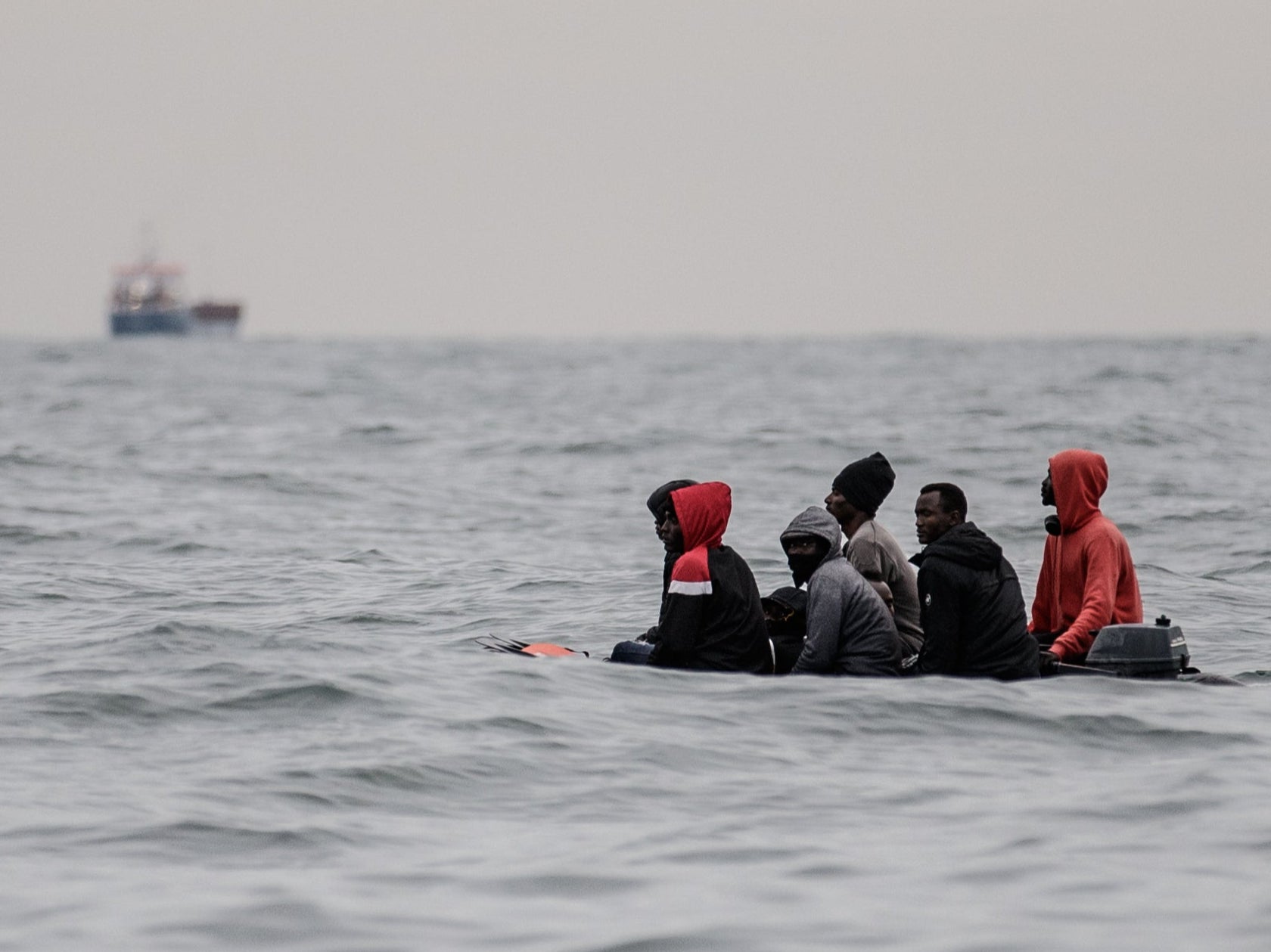The Rwanda plan is a ridiculous gimmick that shames us all
The ‘stop the boats’ flagship policy, which is now going through parliament, has become a lightning rod for disgruntled hard-right Tory rebels – but it is also a legal and moral test for a nation adrift, says Helena Kennedy


When the Universal Declaration of Human Rights was adopted in the aftermath of the Second World War, it was recognised immediately as a milestone document. To enshrine “human rights” in international law was to protect the individual in the face of potential harms from states and other powerful entities.
At the time, one key concern of many signatories to the universal declaration and other post-war human rights documents was that fascist or communist governments could override individual rights in the name of collective interests.
Which is why the concept of a European Convention on Human Rights in 1950 found such favour with Winston Churchill and his fellow Conservatives. To them, protecting the individual rights of people because they are human felt like a very conservative concept – one with a sacred meaning.
Yet here we are, nearly 75 years on, with a Conservative government captured by its hard-right, forgetful of its own history and its moral values, and prepared to abandon the protections created for individuals to access the courts of our nation.
Today, a group of rebel Tory MPs, led by former immigration minister Robert Jenrick, revealed it intends to further toughen up the government’s flagship Rwanda bill, which is currently going through parliament.
First unveiled by the government two years ago, the bill has become a legal and moral test for our nation. And it is one we are failing.
The legislation is an effort to resurrect the gimmicky and deeply flawed plan to send asylum seekers to a third country. It was a wheeze to outsource our treaty obligations under the Refugee Convention to provide sanctuary for those fleeing persecution.
It is the third piece of pathetic anti-asylum legislation which this government has introduced to deal with the arrival of people who have crossed the Channel in unseaworthy boats provided by traffickers. Some may be economic migrants, but among them are people in mortal danger in their own countries.
Jenrick’s amendments would make it even harder for asylum seekers to appeal their deportation to Rwanda by preventing last-minute injunctions from the European Court of Human Rights (ECHR).
His intervention is but the latest setback for a widely hated and hateful piece of legislation. In December, the Supreme Court ruled that Rwanda was not a safe place to send asylum seekers because it had failed many who had legitimate claims – and, as a country, it does not have the legal infrastructure and legal standards needed to process such requests for asylum.
But, anxious to wave the anti-migration flag in the coming general election, the government is to introduce a new emergency bill that seeks to contradict the Supreme Court’s judgment and assert that Rwanda is, indeed, now “safe”.
“Cats are actually dogs” was the vivid analogy used by Edward Garnier, a former Conservative solicitor general. With the help of Britain, Rwanda has, we are told, in a matter of months, dragged its legal system up to proper rule-of-law standards, something that took our own United Kingdom centuries.
The amendments that Conservative hardliners are pushing are being resisted by more fair-minded and sensible colleagues, such as the current minister of justice, Alex Chalk, who knows why individual rights matter.
One of the rebels’ proposed amendments would deprive an asylum seeker of the right of individual petition to a court on their own individual circumstances – such as medical grounds, because Rwanda may be unable to provide adequate care for some conditions.
It is rarely mentioned, but mental illness haunts 25 per cent of the Rwandan population, which 30 years ago suffered a terrible genocide and the mental consequences are still manifest in new generations. There are only 15 psychiatrists in the entire country, and very few trained psychologists. The provision of mental health care is dire in Rwanda, and the medical implications for an asylum seeker suffering serious post-traumatic stress disorder, among other mental illnesses, could be fatal.
Another Tory amendment to the Rwanda bill would create a derogation from the power of the ECHR to put a stay on any deportation to Rwanda while a court hearing in the UK is in progress. It is a form of temporary injunction to ensure that an individual can place their case fairly before the courts here. Again, this power is a reflection of our own moral and legal values about providing fair trial and due process.
The practical folly of such an amendment is that it will put in jeopardy our membership of the Council of Europe and undermine the steps now being taken to restore cooperation with Europe over immigration trafficking and other crimes. It reintroduces the sort of bad faith that damages collaboration.
What is the purpose of this absurd piece of legislation? If an intended asylum seeker has flogged across Europe, risking life and limb, and is about to board a small boat for the final leg of the journey, I rather doubt that the risk of possibly being sent to Rwanda after a protracted legal process, if intercepted, is going to cause that person not to board the boat. As deterrents go, this is strikingly feeble.
The best way of stopping the flow of crossings is to cooperate more fully with France to increase the number of beach patrols. As of November 2023, £63m had been paid to France in that year for that purpose, with a 25 per cent reduction in small boat arrivals, equating to about 8,200 people. Obviously, development of that agreement with France is the only feasible way of reducing the number of crossings.
By contrast, in that same year, £140m was paid to Rwanda, and since then vast further sums have been promised. It will be months, if not years, before a single asylum seeker is removed to Kigali.
The bill has become a purely symbolic issue for the hard-right Tories. If it is amended and passed as proposed by the rebels, it will, at best, result in a handful of asylum seekers being sent to Rwanda at enormous expense, funded, of course, by the hard-pressed taxpayer. It will have the consequence of showing us to the rest of the world as a country that is an unprincipled treaty breaker; that is indifferent to the rule of law; and that has turned its back on fellow human beings in desperately abject circumstances. The shame and humiliation we will suffer will be unparalleled.
The UK has the reputation of being the nation most respected globally for its system of law and its independent judiciary. But we are in serious danger of losing that totemic status.
Baroness Helena Kennedy KC is co-host of ‘Law and Disorder’, a new legal podcast launching on 20 January. Her sparring partners are former Lord Chancellor Lord (Charles) Falconer KC and Sir Nicholas Mostyn, the former High Court judge and top divorce lawyer






Join our commenting forum
Join thought-provoking conversations, follow other Independent readers and see their replies
Comments